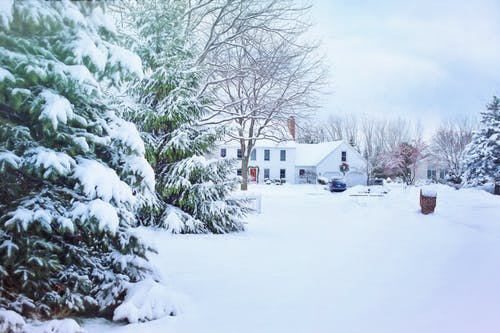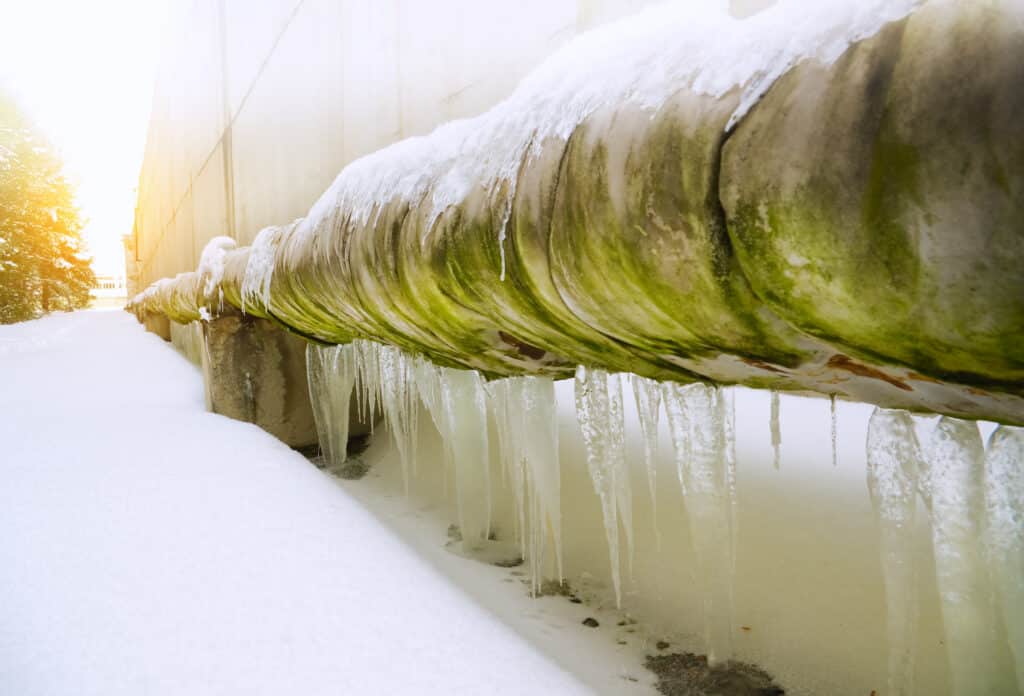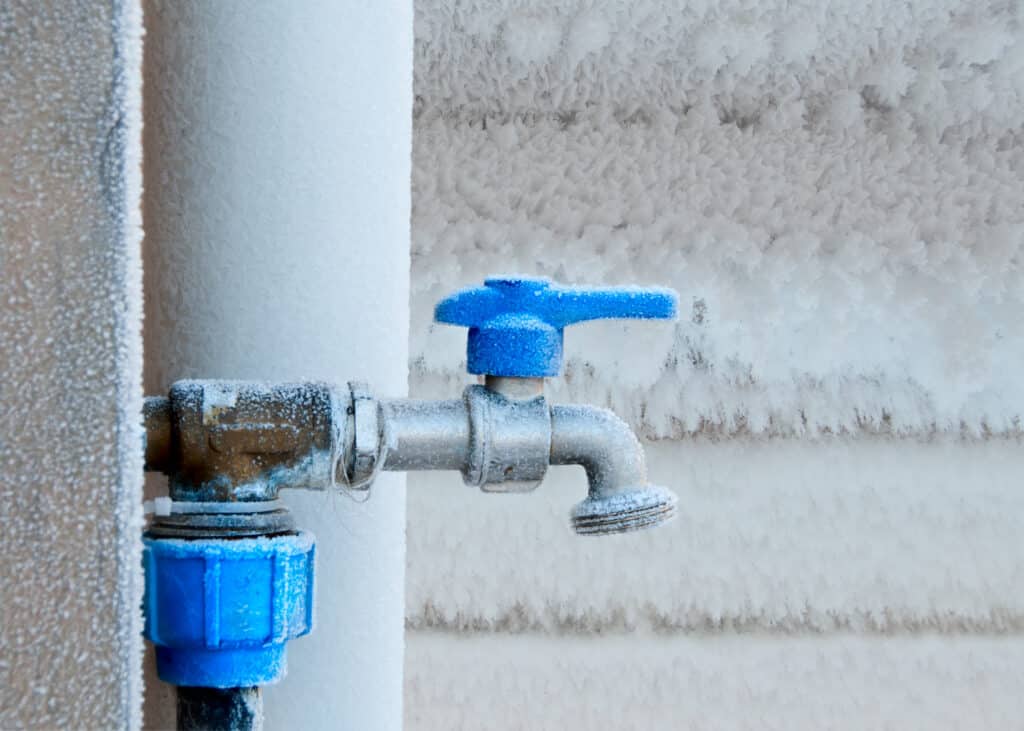
With colder weather creeping up on Utah residents, another part of your home you should keep in mind this winter season is your pipes. If you are constantly using your pipes and running water through them, the likelihood of frozen pipes is significantly lower. But exterior taps for hoses or basement pipes that are less insulated may freeze over and cause damage when you try to use them again. S&B Plumbing wants to give Utah homeowners some tips on how to avoid frozen pipes this winter and save their homes from unnecessary damage.
Drain Lines In The Fall
Before the weather starts to cool off in the evenings, drain any water that may be idle in your pipes that will not be used during the winter. Drain pools, water sprinkler supply lines, and other outdoor taps. This can help stop freezing or bursting when the water expands as ice.
Prepping your pipes in the fall can save you from working on them in the snow and wind. Keeping the outside valve open and allowing water to drain will also help prevent a build-up of pressure when that tap is used again. This will prevent the pipe and valve from freezing entirely. Pipes can benefit from cleaning and installation before the cold weather takes over.
Make Sure Pipes Are Insulated
For spaces like your attic and basement, you will want to insulate your pipes to stop them from freezing. Exposed pipes are also more prone to freezing when they are not protected properly. Check for pipes under kitchen and bathroom cabinets, in the garage, or in other hidden places. Both hot and cold water pipes can benefit from the proper installation and help you avoid frozen pipes.
Run A Tiny Bit Of Water
The easiest way to keep pipes from freezing completely is to run water through them. Using just the slightest amount of water in your sink or bathtub can help prevent the entire pipe from freezing or expanding and bursting from the pressure of using a full force of water after the winter is over.

Adjust The Thermostat
Increasing the temperature of your home can help protect pipes underneath cabinets or in small rooms of your home. Keeping the temperature in your home at the same temperature during the day and the night will help you avoid frozen pipes when temperatures drop during the night.
Know Your Resources
There are new technologies and sensors to help you keep track of the state of your pipes. A freeze alarm can help detect when the indoor temperature drops below 45 degrees so that you can help high-risk areas warm back up.
Hot water circulation pumps can push warm or hot water throughout your lines to keep them above the benchmark of freezing. This can help prevent you from running more water through your home than necessary, but protect pipes from bursting.
Ways To Help Thaw Frozen Pipes
If you notice or suspect a frozen pipe, there are measures can take to help limit the damage to your home. If the pipe has not burst and you are waiting for a plumber, there are some small steps you can do to help save parts of your home.
Identify The Frozen Pipe
Identify the pipe that is frozen by opening every faucet and watching for a trickle of water. This is a sign of frozen pipes and once you find one, keep in mind that the other pipes are susceptible.

Heat Things Up
You can help heat the pipes up by using any external heating method such as a hair dryer, heating pad, or portable space heater. Heating the area around the nearest outlet to the plumbing will help moisture escape freely.
Slowly Restore Water Elsewhere
As you need to restore water to the rest of your home, be aware and watch for other leaks or problems. If other leaks are spotted, you will need to cut the main water supply while you contact a plumber to fix the problem.
Work With S&B Plumbing
When you are dealing with frozen pipes, you need to contact an experienced plumber. S&B Plumbing can help you identify the problem pipe and save your home from costly damage. Frozen pipes can burst and cause any water that runs through them in the future to leak everywhere. Water damage is hard to come back from, so protect your home during the winter season by prepping your pipes. Our team wants to help you avoid frozen pipes during the winter and will inspect your home before the cold weather sets in as well.
